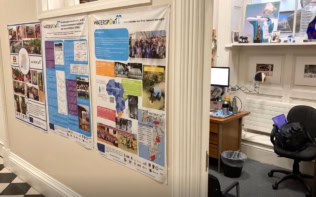
The US must make big changes to graduate education in the sciences and related fields if it is to meet the evolving needs of students. That is according to a report published on 29 May by the National Academies of Sciences, Engineering, and Medicine, which looks at graduate education in science, technology, engineering, and mathematics (STEM) subjects. The report calls for increased emphasis on teaching and mentoring of students as well as recognition that increasing numbers of graduate students will find careers outside of academia.
The report was commissioned in the wake of increased evidence that many graduate programmes do not prepare their students for work. “Continuous, dramatic innovations in research methods and technologies, changes in the nature and availability of work, shifts in demographics and expansions in the scope of occupations needing STEM expertise raise questions about how well the current STEM graduate education system is meeting the full array of 21st-century needs,” the report notes.
The bottom line is that the US education system is in need of modification
Alan Leshner
To identify causes and solutions to the problem, the 17-strong panel spent 18 months studying data, commissioning analyses of research on educational practice, and holding focus groups with students, faculty members, university administrators, industry leaders, and policymakers. “We wanted to centre our attention on the students themselves,” notes panel member Keith Yamamoto, vice chancellor for science policy and strategy in the University of California at San Francisco.
The result is a catalogue of characteristics of ideal graduate education and a list of core competencies that all Master’s degree and PhD students should develop. These include developing a broad technical literacy coupled with deep specialization in an area of interest, communicating the results of their work, as well as considering the ethical and societal issues associated with it.
“If we do not ask ourselves serious questions about incentive structures, focused solely on peer-reviewed articles, quantitative numbers of articles, and research funding, then I fear we will have lost the opportunity to really make a difference in our students and our country,” says panel member Suzanne Ortega, who is president of the Council of Graduate Schools.
Lagging behind
The report notes that the US education system needs to become more student-centred rather than focusing primarily on the needs of institutions of higher learning. “[Programmes] must be realigned to increase the relative rewards for effective teaching, mentoring, and advising,” the report notes. “Unless faculty behaviour can be changed the system will not change.”
Alan Leshner, chief executive officer emeritus of the American Association for the Advancement of Science, who chaired the panel, says that those contacted during the preparation of the report have responded positively to it. “We see coming down the road a whole group of changes,” says Leshner. “The bottom line is that the US education system is in need of modification.”
Leshner adds that he does not know when the panel’s recommendations could become reality, but says that major improvements in students’ experience could happen within the next five to 10 years. “Physicists manage with great success to work in large teams and recognize each individual’s contribution,” he told Physics World. “The rest of science is lagging behind the physics community in that regard.”



